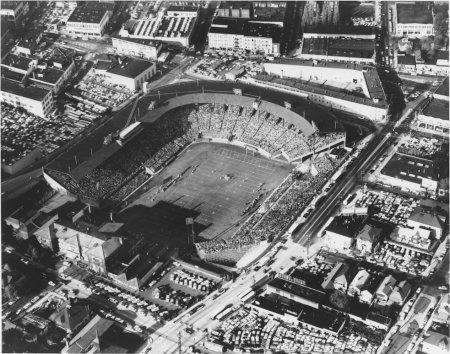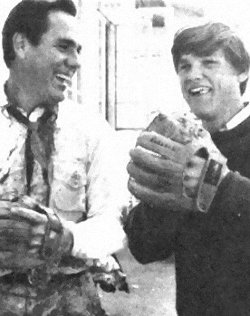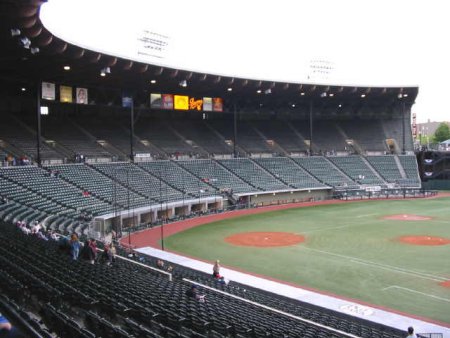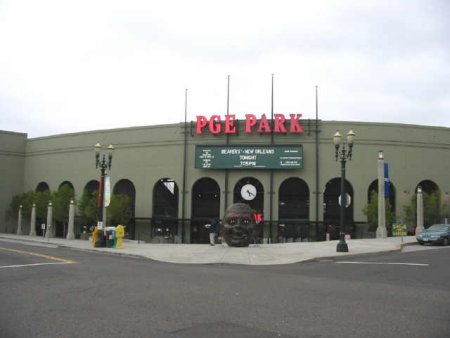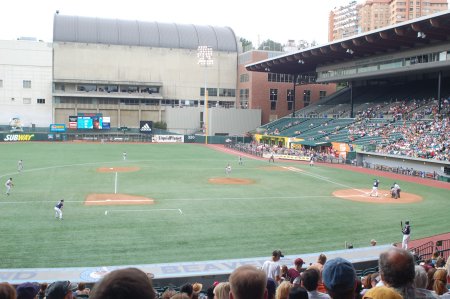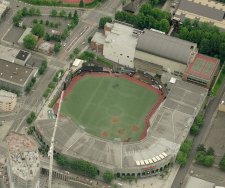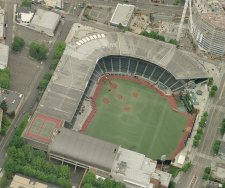 |
Multnomah Civic Stadium The Multnomah Amateur Athletic Club in Portland, Oregon is a private club formed in 1891 by twentysix football players. Football, the newer version born from rugby was the inspiration for forming the club while its name Multnomah refers to the county in Oregon named after the Native Americans recorded in the journal of Lewis and Clark. "Amateur" would eventually be dropped from the club's name.
In 1893, the two-year-old club leased a plot of pastureland in an area then known as Tanner Creek Gulch to build a stadium. The site had earlier been a tannery and then a large Chinese vegetable garden that supplied produce to much of Portland. The athletic club built a small 3000 seat grandstand in the northwest corner close to the end of the field and a training house in the southwest corner and called it Multnomah Field.1
It was home to every popular outdoor athletic event of the day: baseball, football, track and field, bicycle racing, cricket, and many others. In 1895, the site even hosted a major league baseball exhibition game.1 Professional baseball was first played there when the Portland Giants, renamed the Beavers in 1906, played their first games there in 1905 while their 12000 seat Vaughn Street Stadium was used as a track venue by the Lewis and Clark Exposition and World Fair.2 In 1907 the city began a "festival of roses" and a group of ten businessmen formally organized the Portland Rose Festival to plan and finance the annual event.
By the end of the first decade of the 20th century, a new steel grandstand had been erected, affording seating for more than 10,000 fans. The north side of the field was bounded by the huge wooden Exposition Building, touted as the largest wooden structure west of the Mississippi. In 1909, President William H. Taft visited Multnomah Field and nine months later on July 14, 1910, the Exposition Building caught fire destroying the MAAC clubhouse, the new grandstand and eventually seven city blocks.1
The grandstand was replaced the following summer though even then it was considered too small to support Portland's rate of growth. By 1923 it had been noted that Portland had no big athletic or community stadium and evident when President Warren G. Harding visited and a crowd estimated to be between 25,000 and 30,000 people packed themselves into every nook and cranny of Multnomah Field.1
In 1925 the club approved plans for a new $500,000 28,000-seat Multnomah Stadium and in two months $300,000 had been raised and construction began. Designed by A.E. Doyle, the original plans called for a grandstand on the east side of the stadium in parallel with the present grandstand on the west side completing a horseshoe shape but the club didn't own all the property along 18th Avenue.1
Multnomah Civic Stadium was completed at a cost of $502,000 and formally dedicated on October 9, 1926 when the University of Washington football team beat the University of Oregon, 23-9 with more than 24,000 fans in attendance.1
College football only used the stadium occasionally though and it wasn't until 1933 when Oregon lawmakers approved pari-mutuel betting that the stadium had a major tenant and consistent source of income in Greyhound racing. The Multnomah Kennel Club, formed by group of principals from the Belmont Greyhound Track in California, was the stadium's lone major tenant and biggest source of revenue from 1933 until 1955.1
In 1949, the Sons of the Pioneers made an appearance at the stadium at the time that they were the foremost vocal and instrumental group in western music, specializing in cowboy songs. They were initially formed in 1933 by Leonard Slye, with Tim Spencer and Bob Nolan, and in 1934 hit it big with "Cool Water" and "Tumbling Tumbleweeds." Slye would eventually leave the band as his film career took off. He became better known as Roy Rogers. In 1944 the Sons of the Pioneers were signed to RCA Victor by Steve Sholes, the head of company's country music division, and would remain with the label for 24 years. The Sons of the Pioneers continued their popularity through the 1950s. Although Rogers was no longer a member, they often appeared as Rogers' backup group in films, radio, and television.3
In June of 1953 the Cascade Ski Club
organized the "Portland Rose
Festival" and a ski jump was built in the stadium. The steal pipe hill construction was covered with about 200 tons of artificially made snow, which was produced by four ice powder machines of a local company. Despite the warm rain which was falling in evening hours this artificial snow outlived the whole event due to the first time use of a chemical snow additive called “snow cement” which stabilizes melting snow surfaces on ski jumping hills. Most of the 40,000 spectators had never had seen ski jumping or an alpine slalom before.4
The stadium made sports history when on August 28, 1955 it was host to the first pre-season NFL game to be decided in overtime when the Los Angeles Rams beat the New York Giants 23 to 17, sudden death. In 1956 the greyhounds moved to the Portland Meadows horse track and the stadium got another major tenant when baseball returned and the Portland Beavers of the Pacific Coast League moved from Vaughn Street to play their home games.1 The Beavers transplanted the grass from the Vaughn Street Stadium to Civic Stadium.2
The Oregon papers had been announcing the show and tour several weeks before the Portland date and a blurb in the local paper on Sunday, September 1st, the day before the show, announced tickets still available. TICKETS LEFT FOR PRESLEY Reports by writers Don Horine and Dorothy Lois Smith in the Portland Journal the day following the show described the event as follows:
A gold suit, an oft-plucked guitar and a sideburned bundle of the most enchanting, gyrating and just plain droolin’ rock ’n’ roll charmer ever to hit this world plopped right into the laps Monday of thousands of hysterical Portland teenagers. How they loved it! 6
They jammed the Union station, the Multnomah hotel, the Multnomah stadium gateways. They thrilled to every word, every breath of the famed entertainer. Here was heaven, a haven in otherwise conservative life of studies, dishes and mowing the lawn. Here was a miracle wrapped handsomely in a single package-a miracle wearing the exciting name of Elvis Presley.6 THERE WERE many who at the end of the day were slightly frustrated, in some cases even disillusioned. Some of these were among the 500 first jubilant and later disappointed Presley fans who crowded Union station at 4:30 p.m. Monday for a glimpse-oh, please, just a glimpse-of the man.6
Others were included in the hundreds who blocked the front entrance of the Multnomah hotel where the man of the hour was to while away several of his Portland hours only to later discover that clever agents had smuggled him through the side door, unobserved by teenage eyes.6 At the station he escaped the crowd by edging quickly from the last car on the train to a waiting convertible. Scarcely more than 15 fans not among the official party were able to reach the scene before the auto made its fast exit. Meanwhile, those 500 Presleyites at the station slowly grew aware of the disappearing act.6
IN THE eighth-floor governor’s suite at the hotel he stayed with 12 troupe headliners, eating and making merry over the sounds of Presley records. No unauthorized persons were allowed near the floor, and the few diehards who did slip by advance guards were halted and quickly ushered from the area by an efficient squad of policemen, Presley’s three security officers and cleaning women. Then, at 8 p.m., on to the stadium, where again he bypassed scores of you-know-who expecting their idol to travel down the ramp into the stadium. No sir.6
Instead, he jumped from a cab at the head of the Multnomah Athletic club, adjacent to the stadium, where he met with newsmen and photographers in a half-hour press conference. Numerous winners of local disc jockey shows posed with him following the conference. Everywhere, photographers’ shutters clicked.6
I [Dorothy Smith] was completely shook up Monday night. Who wouldn’t be after exposure to two Elvis Presleys, in one evening? There’s definitely the on-stage Elvis and the off-stage Elvis.7 And there was an equally shakeable Elvis in his dressing room for the mass press radio and TV interview before he donned the gold jacket to enter the stadium. This Elvis was impeccably clad in black slacks and shoes, white shirt with handsome black and silver tie and stickpin, and a suave, light blue dinner jacket.7
The off-stage Presley answered the countless questions fired at him during the interview—a few of them sharply barbed-with poise and good humor. Concerning Anita Wood, the glamor-girl whose name is romantically linked with his. "There’s nothin’ serious. We’re more than friends, but nothin’ serious."7
WHEN ASKED about the many rumors of marriage, he explained. "Often when I’m supposed to be marrying one girl a certain night, I’m out with another girl on a date. This is confusing to me, and I may be surprised and wake up and hear I’m married sometime," he laughed.7
THE IDOL is equally candid about his voice and the misconception, that he "discovered" rock ’n’ roll. When asked if he had to get in a special mood before making his recordings, he said: "I don’t have the best voice in the world, so I must feel it. When you’re singing ballads, I guess you do always think of some girl."7
"Rock ’n’ roll," he added, "was around a long time before me—it was really rhythm in blues. I just got on the bandwagon with it. Then, I lived in a country where there were all-day singings, and sang religious songs when I was real young in church. They were the rockin’ type of music-spirituals.7
One disc jockey asked pointedly if Elvis had any other recording favorites "other than yourself."7
TO THIS, Presley answered goodnaturedly that he had many, including the Four Aces, Nat King Cole, Dean Martin and Pat Boone. When asked what he thinks of Little Richard, he laughingly conceded: "I'l1 say there’s no one in the world as long-winded as he." Elvis said he has taken his physical for entering the service and is "waiting for them to let me know." "I just take every day as it comes and don’t look into the future," he said.7
BUT BY NOW the stadium show was in progress, mellowing an estimated 14,000 persons. Band instrumentals, tapdancing, comedy routines, vocals and numbers by the four Jordonaires all brought polite applause from a crowd still thirsting for Mr. Elvis. And he didn’t disappoint. Not this time. It was l0 p.m. on the nose. The second act started with a rambunctious vibraphone player setting the pace. It was zero hour.6
PRESLEY DID NOT appear in the stadium until the second half of his big show. By that time the more than 14,000 fans were stamping and chanting: "We want Elvis! We want Elvis!" 7 Down from the stadium ramp roared the convertible, carrying in it Mayor Terry D. Schrunk, Ken Moore, Presley’s chief security officer, and the gilt-crested Elvis Presley. The roar was deafening. Voices pitched high above a normal screech echoed from one stadium wall to the next. He was here.6
From the time his convertible swept along the track and the gold sleeve waved to the top row of the stadium, his fans became one vocal acclaim of ear-splitting tumult. It was sometimes almost impossible to know which of his rock ’n’ roll hits he was singing, burping and wiggling for his fans. The blare of the music whistled through the right ear and the screaming of the audience pierced the left ear conking out my equilibrium. But my eyesight was perfect, and there’s no doubt that it’s the bumps and grinds, the wiggles and the sinuous writhings that the fans love most. Each wiggle brought forth another in the succession of ecstatic screams.7
HOWEVER, the mass eruption from the stands of beserk teen-agers, such as greeted Elvis in Chicago and recently in Vancouver, B.C., did not materialize. Instead, the woozy fans, many of them members of two Presley fan clubs here, were content to stay at their seats, to shake and wiggle hands, hips and feet, and to convince the singer that Portland, like all other U.S. cities, is "real gone." 6
There was the dazzling, writhing, rock ’n’ roll Elvis in his gold jacket with rhinestone lapels, sorcering his madly screaming fans at Multnomah stadium into one frenzy of ear-splitting ecstasy after another, mounting in intensity to a bomb-burst of emotion with his concluding "Hound Dawg" number.7
SEEMED AS IF the shrill adulation couldn’t be more intense than during the "I Got a Woman" number, when the rock ’n’ roll idol grabbed his guitar and did his rhythmic contortions back of it-sort of like doing a cheek-to-cheek dance with it instead of playing it.7
But it was the "Hound Dawg" number—the last on the list of hits-that created pandemonium. If the audience was going to swarm out onto the field, completely out of control, it would have swarmed during that number. Presley sat on the edge of the stage, swinging his long legs. Then he wiggled to the turf and writhed in a half-crawling position during much of the song. With the last moan of agony, he appeared completely exhausted, and dragged himself back of the stage.7
Following a 40-minute performance, Presley issued a hurried goodbye and sped in the convertible from the tumultuous cheers, an enthusiastic but very much exhausted young man. 6 IN A FLASH he was into the convertible, and the 14,000 were still wildly screaming and stamping when the loud speaker blared: "Ladies and gentlemen. Elvis Presley has left the stadium!" The silence was as deafening as the performance.7
THE SUDDEN departure of Elvis left many of the fans in a frenzied, stifled condition. The announcement from the stage that Elvis had gone and the show was concluded was certainly not news. They had lost him, the lead actor in so many teenage dreams, and he was not to return. But for seven hours, give or take a few precious minutes, he belonged to Portland.6
Following the concert they returned to LA for recording sessions at Radio Recorders scheduled for September 5-7 where Millie Kirkham would join them for the first time. The sessions would produce Elvis' Christmas album in addition to several singles by songwriters Jerry Leiber and Mike Stoller who were also present for the session.5 During the session on a dare, they would write "Santa Claus is Back in town" in about fifteen minutes which will become one of Elvis' greatest bluesy tracks. "Scotty and Bill were especially eager for this session. Elvis had been talking to them for months about doing an album of instrumentals on which Elvis would play piano. The project was his own idea. Financially, they were getting desperate. Every time Scotty or Bill put something together that would allow them to make extra money or receive items in exchange for endorsements, Colonel Parker shot it down. After they completed work on the singles and the Christmas album, they got ready to record the instrumentals. We had even picked the name out for the group: the Continentals, says Scotty. Elvis booked studio time for us. We even rehearsed some songs for the album. But before we got started, Parker found out about it and shut us down."8 That was essentially the last straw for them and they finally came to the realization that "there was not going to be any sharing of the wealth as Elvis had promised. When they had started out they were Elvis and the Blue Moon Boys, the musical equivalent of the Three Musketeers: all for one, and one for all. Now Scotty and Bill were struggling to make a living wage."8 In an attempt to get more money they drafted a letter of resignation and sent it to Elvis but by the time they returned to Memphis the media had got the story (see here), tempers flared and the result was that they had to make good on their resignation as they were prepared to. For the rest of September until the issue was resolved by the end of October, they set out on their own.
In 1958, the Pacific Coast League was transformed from baseball’s third major league into a AAA classification league. The Beavers become a Major League farm team for the first time
affiliated with the St. Louis Cardinals in 1961, the Kansas City Athletics in
1962 and the Cleveland Indians in 1964.9
Single A Baseball came to Portland with the Mavericks, the only independent team in the Class A Northwest League, which was owned by actor Bing Russell. His son, Kurt attended nearly every game.9 Coincidentally, Bing portrayed Vernon Presley in the 1979 TV movie "Elvis" featuring his son Kurt as Elvis. In 1977 the stadium was host to the NASL’s Soccer Bowl ’77, drawing a record crowd of 35,548 and in 1985 the Portland Breakers of the short lived United States Football League
(USFL) played one season there.2
Portland rejoined the PCL in 1978 with the Beavers as an expansion team and the Triple A affiliate of the Cleveland Indians, the Pittsburgh Pirates in 1979, the Philadelphia Phillies in 1983 and the Minnesota Twins in 1987.9 In 1991 during the seventh inning of a game between the Beavers and the Vancouver Canadians, Canadian outfielder Rodney McCray crashed through the "Flav-R-Pac" outfield sign while chasing a fly ball, earning him blooper immortality. Beavers owner Joe Buzas moved the team to Salt Lake City after the 1993 season and from 1995 to 2000 Civic Stadium was home to the Portland Rockies of the Northwest League.1 At that time the facility became the largest park in Class A, and AA baseball.2
The park underwent a $38.5 million renovation in 2001, including Nexturf as the new playing surface, luxury boxes, and the installation of club seating. Naming rights were sold to Portland General Electric and Civic Stadium was renamed PGE Park. The park now holds 20,000 with room for expansion as a temporary home for a relocated Major League team. The stadium’s dimensions are 317 feet to leftfield with a 25-foot wall, 405 feet to center with an 8- foot wall, and 320 feet to right field, also with an 8-foot wall.2
The 2001 season marked the return of Triple-A Baseball to Portland, as the Albuquerque Dukes franchise was purchased and relocated to Portland and revived the name Beavers. The new Portland Beavers, now affiliated with the San Diego Padres, opened the retrofitted park on April 30, 2001 after playing their first eight "home" games in Pasco, Washington. The season also marked the return of outdoor professional soccer to the city, as the Portland Timbers joined the A-League (now USL First Division) as an expansion franchise.1
Today the Multnomah Athletic Club is still a private, not-for-profit athletic and social club located in downtown Portland, Oregon at 18th Street and SW Salmon Street with an eight-level main Clubhouse that overlooks PGE Park.
page added June 18, 2009
1 courtesy PGE
Park and "The
Rebirth of a Grand Ballpark" by Rich Burk
|
|
All photos on this site (that we didn't borrow) unless otherwise indicated are the property of either Scotty Moore or James V. Roy and unauthorized use or reproduction is prohibited. |
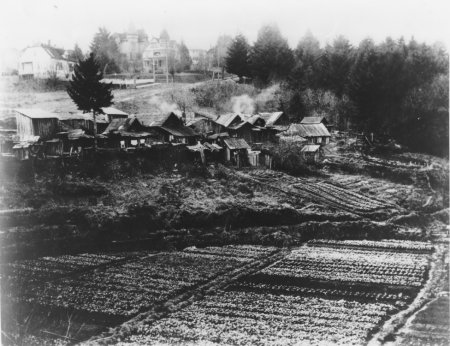
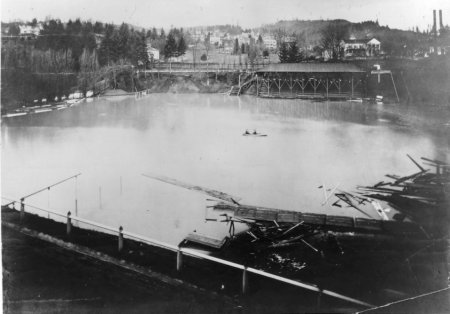
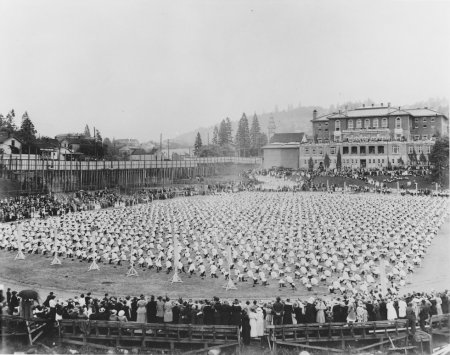
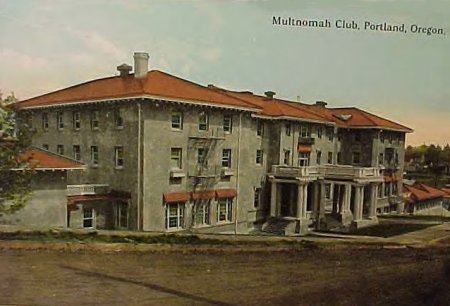
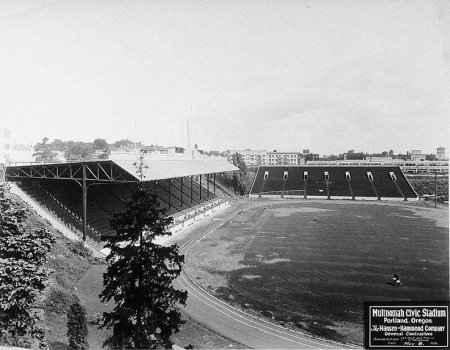
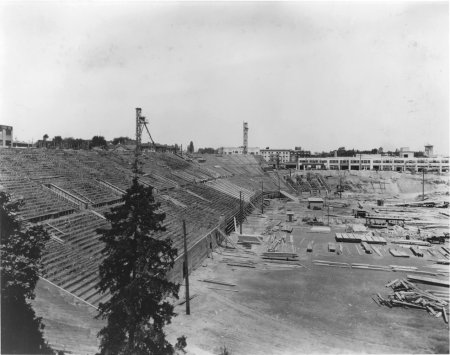
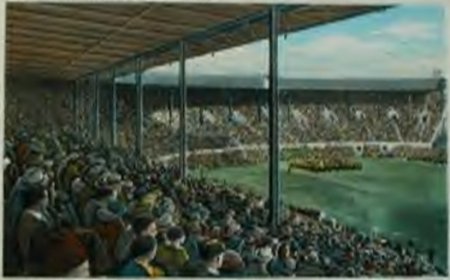
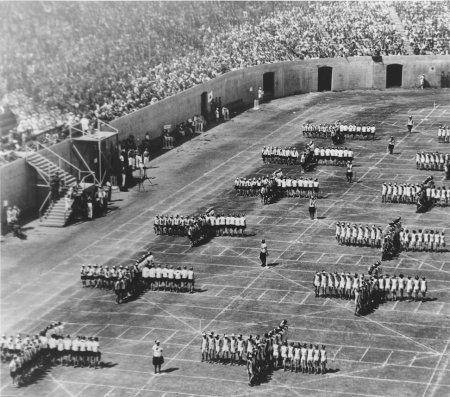
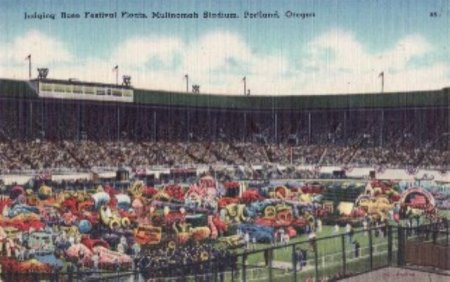
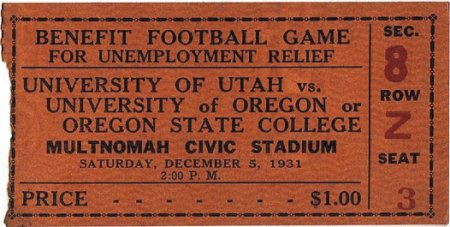
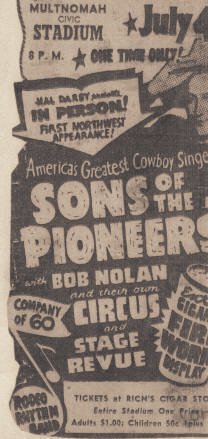
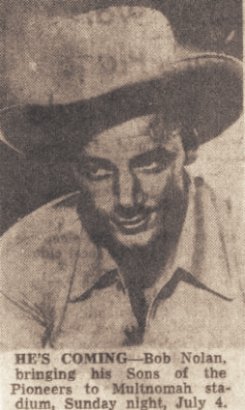
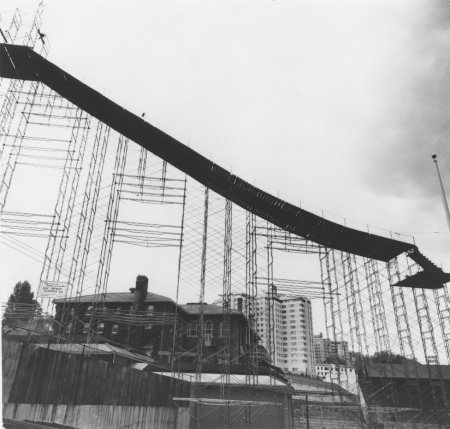
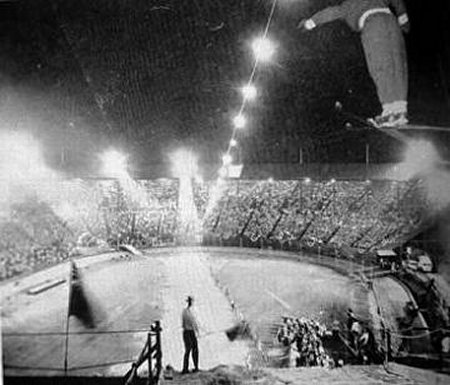
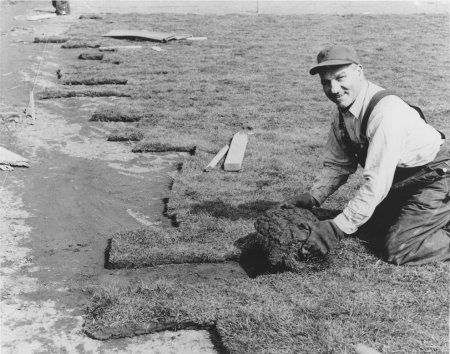
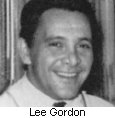 On September 2, 1957, Elvis, Scotty, Bill and DJ
performed one show at Multnomah Civic Stadium as the last stop on a
whirlwind five city, four day tour of the Pacific Northwest that
included
On September 2, 1957, Elvis, Scotty, Bill and DJ
performed one show at Multnomah Civic Stadium as the last stop on a
whirlwind five city, four day tour of the Pacific Northwest that
included 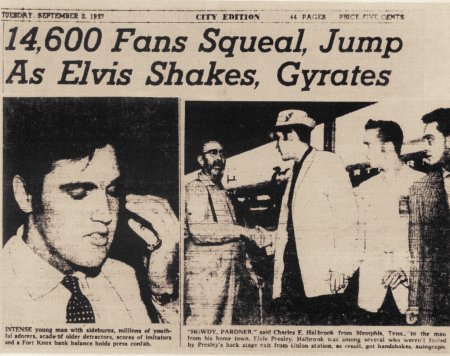
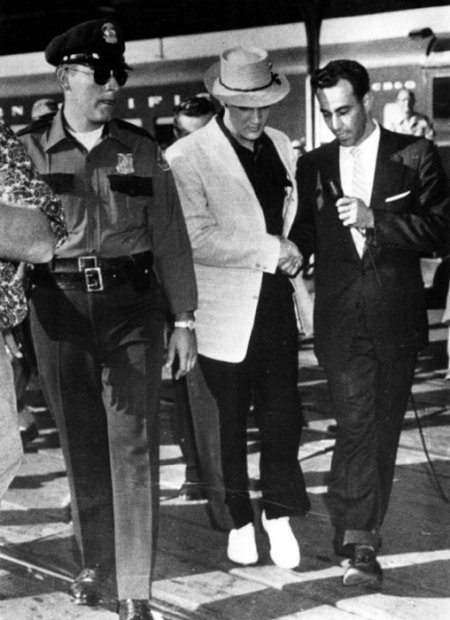
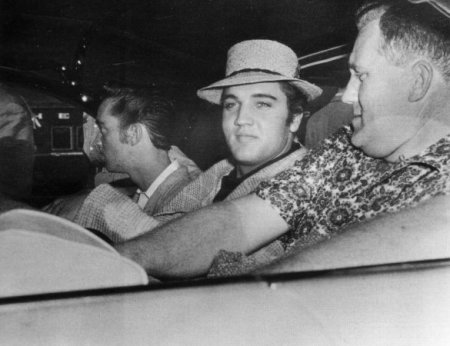
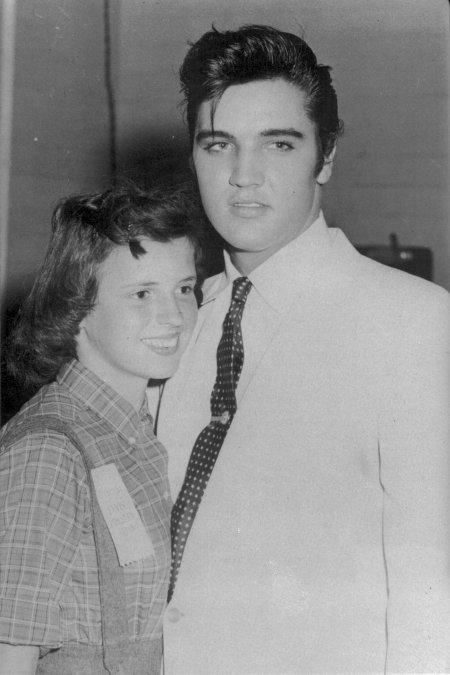
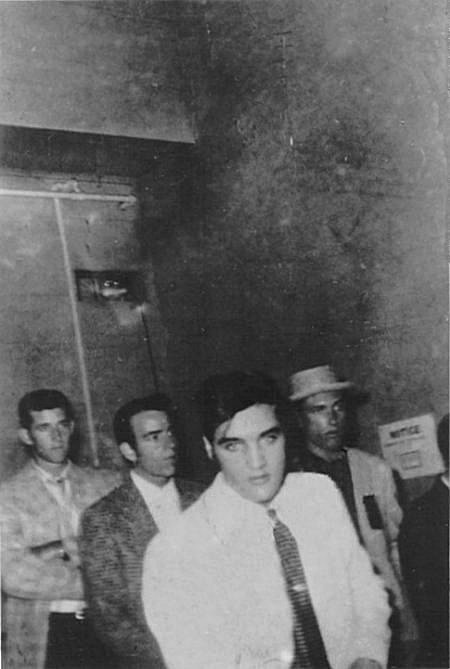
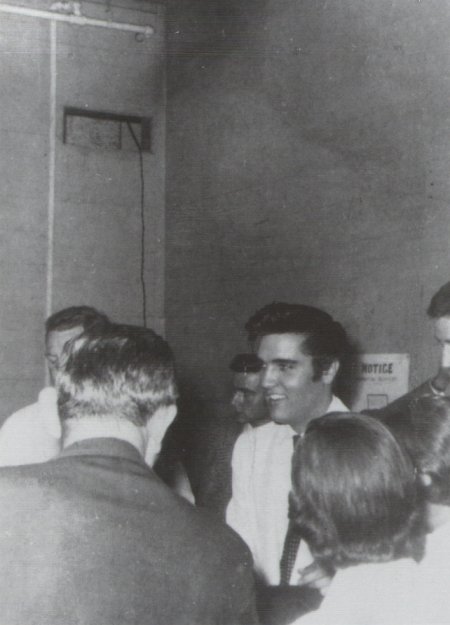
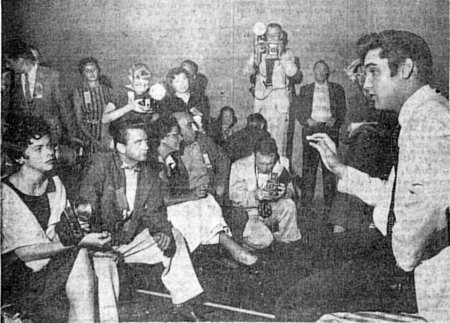
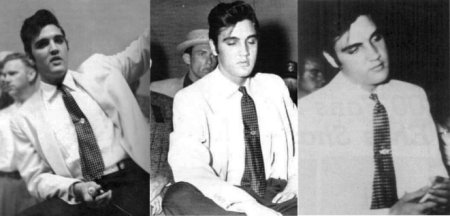
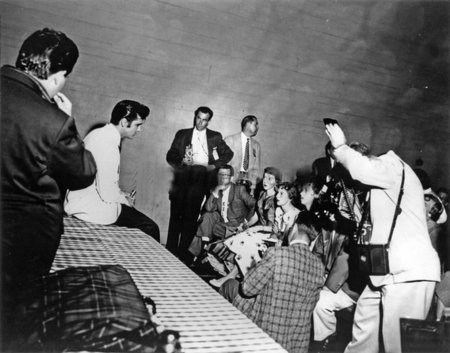
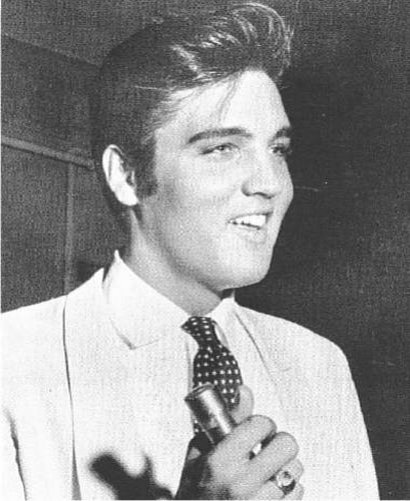
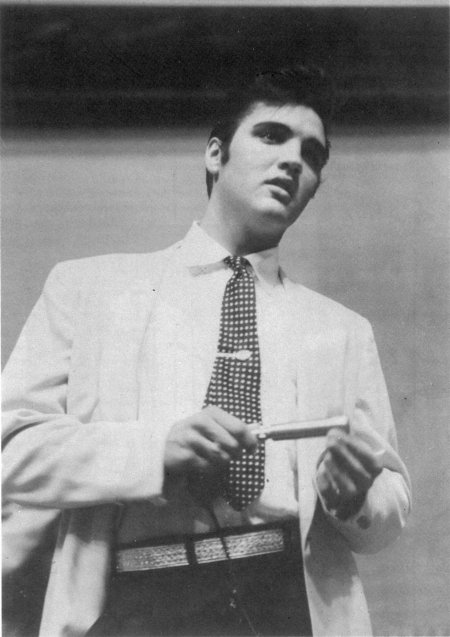

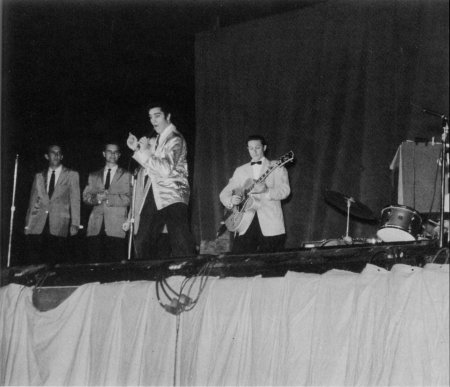

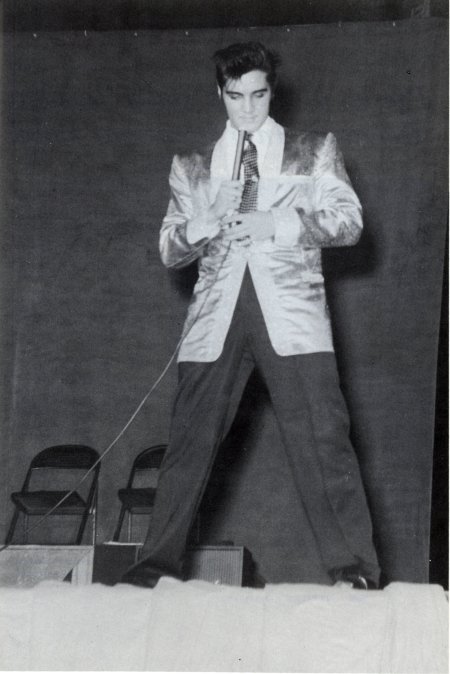
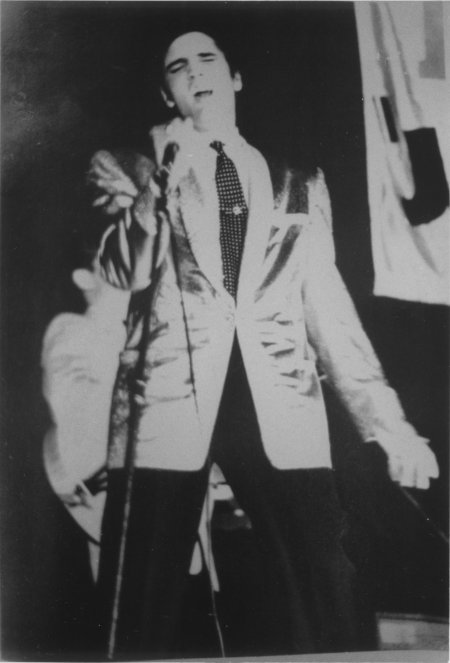
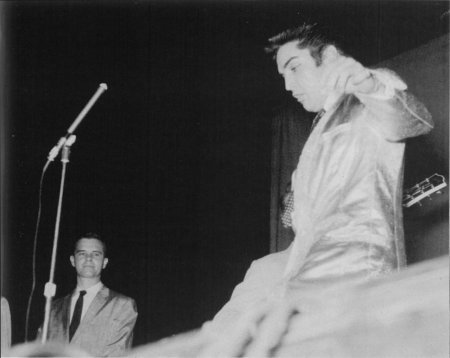
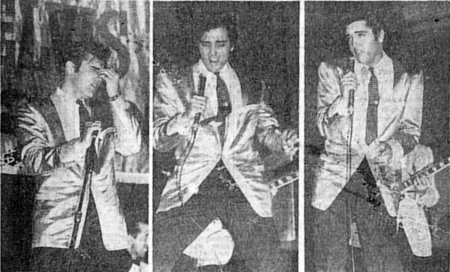
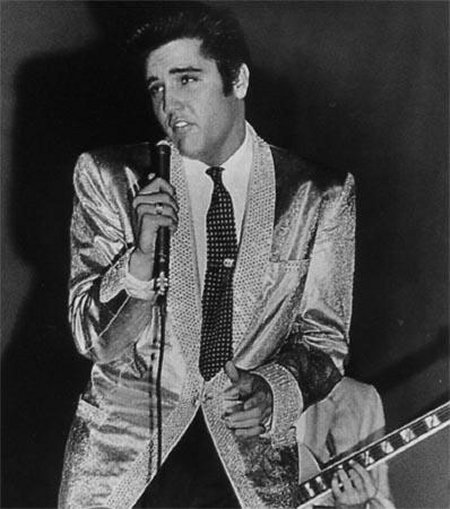
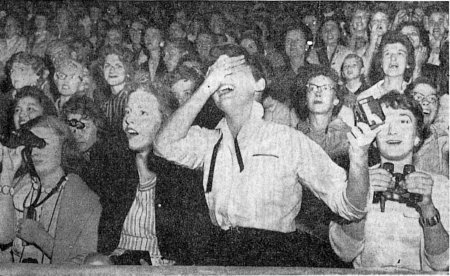
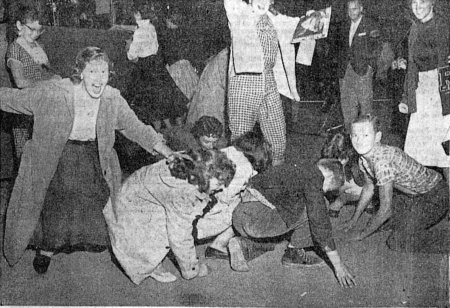
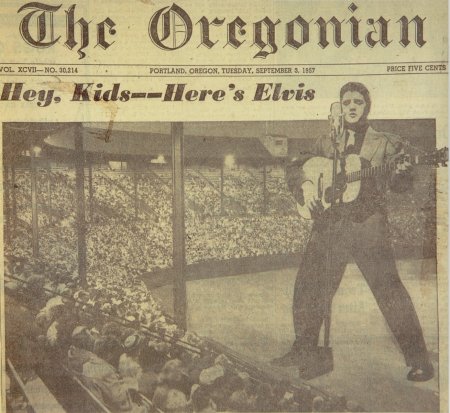
 Critic
of Elvis Convinced He 'Must Have Something'
Critic
of Elvis Convinced He 'Must Have Something'